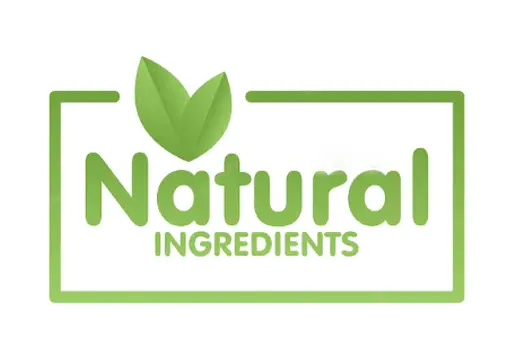Vitamin C: Key to a Healthy Lifestyle, Understanding Its Role in the Body
Posted on 29 Apr, 2023

Its immunosuppressive properties, antioxidant activity, and role in collagen synthesis are just a few of vitamin C's many health benefits. It is also known for its potential importance in the diagnosis, treatment and prevention of a number of diseases. In this in-depth blog post, you'll learn everything you need to know about vitamin C, including its origins, functions, benefits, recommended daily dose, potential adverse effects, and more. So let us dive into the fascinating world of vitamin C and discover its numerous health benefits!
What is Vitamin C?
Vitamin C (ascorbic acid) is an essential, water-soluble vitamin that has attracted a lot of attention for good reason. It is known as an immune-boosting super nutrient. However, in addition to its immune-boosting effects, it also plays other important roles in our bodies.
Recommended daily dose
Adults over 19 years - men - 90 mg
Adults over 19 years - women - 75 mg
Vitamin C overdose
Vitamin C is a water-soluble vitamin, so excess vitamin C is flushed out of the body. Therefore, it is very unlikely that you will overdose on vitamin C. An extremely high dosage of vitamin C can cause typical symptoms such as diarrhea, vomiting and nausea.
Vitamin C: essential nutrient support for your health
Vitamin C is essential for maintaining healthy skin, bones, teeth, and cartilage, It helps heal wounds, repair tissue, and promote tissue growth. It is a powerful antioxidant that neutralizes free radicals (unstable cells) and helps prevent oxidative cell damage, which is the main cause of many inflammatory diseases. It may also help prevent or delay certain cancers and heart disease and promote healthy aging.
Vitamin C is involved in several biochemical processes. It contributes to the activation of numerous vital enzymes in the body responsible for the synthesis of hormones that control the cardiovascular system's response to severe infections. It helps build a tough protein known as collagen, found in the connective tissue and skin that strengthens the skin against injury. It also appears to reduce the risk of cartilage loss in people with osteoarthritis.
Vitamin C aids the absorption of iron from plant foods such as beans, lentils, watermelon, spinach, etc.
Signs of vitamin C deficiency
1. Weak immune system:
Vitamin C is known for its immune-boosting properties, as it promotes the formation and activity of immune cells. A vitamin C deficiency can weaken your immune system and make you more susceptible to infections, colds and other illnesses.
2. Fatigue and weakness:
Vitamin C helps create carnitine, which is needed for fat metabolism for energy. Vitamin C deficiency can lead to fatigue, weakness and a general lack of vitality.
3. Delayed wound healing:
Vitamin C is needed for the production of collagen, which is an essential component of connective tissue and plays an important role in wound healing. A vitamin C deficit can cause delayed wound healing, poor scarring and decreased tissue recovery.
4. Bleeding gums and oral health problems:
Vitamin C helps maintain healthy gums and teeth. A deficiency of vitamin C can lead to bleeding gums, gingivitis, and other oral problems.
5. Dry and rough skin:
Vitamin C is an antioxidant that protects skin damage from free radicals. It helps in collagen formation, which is necessary for maintaining skin health. A deficiency of vitamin C can lead to dry, rough and damaged skin.
6. Joint pain and swelling:
Vitamin C is involved in the production of collagen, which is important for joint and cartilage health. A deficiency of vitamin C can lead to joint pain, swelling and stiffness.
7. Mood swings:
Vitamin C is involved in the production of important mood-regulating neurotransmitters, dopamine, and norepinephrine, which are important for regulating mood. A deficiency of vitamin C can contribute to mood swings such as irritability, depression, and anxiety.
Health benefits of vitamin C
1. Powerful antioxidant:
Free radicals are formed in our bodies when we produce energy. Other factors such as toxic chemicals, UV rays, pollutants such as cigarette smoke, etc. lead to free radical formation. The accumulation of free radicals can contribute to the development of many health disorders such as heart disease, osteoarthritis, cancer, etc. Vitamin C is one of these micronutrients that also acts as an antioxidant, protecting us from the damage caused by free radicals.
2. Natural Immunity Booster:
Vitamin C is your natural immunity booster because it is involved in the proper functioning of the immune system. It helps promote the production of white blood cells (defense cells) that protect the body from harmful pathogens. It is even beneficial for individuals whose immune systems are severely compromised by stress. As a powerful antioxidant, vitamin C also helps these defense cells work more effectively by protecting them from free radical damage. Fatty membranes in the skin and connective tissue are strengthened by Vitamin C, which leads to the improvement of skin's barriers. Studies have also shown that taking vitamin C supplements can shorten wound healing time and speed recovery. Vitamin C and zinc make the best duo for better immunity. Both support the development and efficiency of your immune system, keeping common colds and coughs at bay.
3. Promotes skin health:
Vitamin C intake lowers the chances of skin aging symptoms like skin dryness, wrinkles, etc. are findings of a study published in the American Journal of Clinical Nutrition.
4. Relief from colds:
Vitamin C supplements reduce the severity and duration of colds in the general population. Several studies have found that taking vitamin C supplements during a cold can shorten the course of illness by 8% in adults and 14% in children. Study participants received a daily dose of at least 200 mg of vitamin C for varying periods of time. A 2019 report on cell culture and preclinical studies found that when pathogens enter the body, vitamin C helps direct immune cells (neutrophils) to the site of infection and protects these cells from free radicals.
5. Reduces the risk of cardiovascular disease:
A research study in the American Journal of Clinical Nutrition found that individuals with the highest blood concentrations of vitamin C had a 42% lower risk of stroke than those with the lowest vitamin C concentrations.
6. Lowers high blood pressure:
Taking a vitamin C supplement helps to relax blood vessels, which in turn helps lower blood pressure.
7. Prevents iron deficiency:
Vitamin C helps improve the absorption of iron from food by converting poorly absorbed plant sources of iron into a more easily absorbed form. To take advantage of this benefit, combine both vitamin C-rich foods and iron-rich plant foods in one meal. For example, you can add lemon juice to legumes and lentil sauce, make a salad dressing with lemon juice, etc.
8. Protecting the brain from degenerative diseases:
Vitamin C is an antioxidant and protects the CNS from inflammation and oxidative damage caused by free radicals. Therefore, it has been shown to have a protective effect on thinking and memory in old age.
Best food source
Unlike other animals, we humans cannot produce vitamin C ourselves. Therefore, we need to get it from food or supplements to stay healthy. Vitamin C is mainly found in fresh fruits and green leafy vegetables; all citrus fruits such as oranges, lemons, limes, strawberries, kiwis, peppers, green chilies, broccoli, kale, cauliflower, beets, spinach, etc., contain vitamin C. Therefore, eating a variety of vitamin C-rich fruits and vegetables can contribute greatly to optimal health and well-being.
Vitamin C Supplements
Men over the age of 19 need about 90 mg of vitamin C per day, while women need 75 mg. So how many mg of vitamin C do you get from one orange? It's difficult to figure that out. Plus, your body has to expend energy to process the nutrients from food. With supplements, vitamin C is readily available to the body and is available in a precise dosage. You also get a combination of several vitamins and minerals in one dose. When you support your daily diet with a good diet and supplements, it's clearly a win-win situation for you.
Conclusion
Vitamin C is a water-soluble essential vitamin with immune-boosting, antioxidant, and anti-inflammatory properties and numerous health benefits. It supports wound healing and collagen formation, boosts the immune system, delays the signs of aging and promotes healthy skin. So make sure you get your daily dose of vitamin C through fruits and vegetables or natural supplements.
What is Vitamin C?
Vitamin C (ascorbic acid) is an essential, water-soluble vitamin that has attracted a lot of attention for good reason. It is known as an immune-boosting super nutrient. However, in addition to its immune-boosting effects, it also plays other important roles in our bodies.
Recommended daily dose
Adults over 19 years - men - 90 mg
Adults over 19 years - women - 75 mg
Vitamin C overdose
Vitamin C is a water-soluble vitamin, so excess vitamin C is flushed out of the body. Therefore, it is very unlikely that you will overdose on vitamin C. An extremely high dosage of vitamin C can cause typical symptoms such as diarrhea, vomiting and nausea.
Vitamin C: essential nutrient support for your health
Vitamin C is essential for maintaining healthy skin, bones, teeth, and cartilage, It helps heal wounds, repair tissue, and promote tissue growth. It is a powerful antioxidant that neutralizes free radicals (unstable cells) and helps prevent oxidative cell damage, which is the main cause of many inflammatory diseases. It may also help prevent or delay certain cancers and heart disease and promote healthy aging.
Vitamin C is involved in several biochemical processes. It contributes to the activation of numerous vital enzymes in the body responsible for the synthesis of hormones that control the cardiovascular system's response to severe infections. It helps build a tough protein known as collagen, found in the connective tissue and skin that strengthens the skin against injury. It also appears to reduce the risk of cartilage loss in people with osteoarthritis.
Vitamin C aids the absorption of iron from plant foods such as beans, lentils, watermelon, spinach, etc.
Signs of vitamin C deficiency
1. Weak immune system:
Vitamin C is known for its immune-boosting properties, as it promotes the formation and activity of immune cells. A vitamin C deficiency can weaken your immune system and make you more susceptible to infections, colds and other illnesses.
2. Fatigue and weakness:
Vitamin C helps create carnitine, which is needed for fat metabolism for energy. Vitamin C deficiency can lead to fatigue, weakness and a general lack of vitality.
3. Delayed wound healing:
Vitamin C is needed for the production of collagen, which is an essential component of connective tissue and plays an important role in wound healing. A vitamin C deficit can cause delayed wound healing, poor scarring and decreased tissue recovery.
4. Bleeding gums and oral health problems:
Vitamin C helps maintain healthy gums and teeth. A deficiency of vitamin C can lead to bleeding gums, gingivitis, and other oral problems.
5. Dry and rough skin:
Vitamin C is an antioxidant that protects skin damage from free radicals. It helps in collagen formation, which is necessary for maintaining skin health. A deficiency of vitamin C can lead to dry, rough and damaged skin.
6. Joint pain and swelling:
Vitamin C is involved in the production of collagen, which is important for joint and cartilage health. A deficiency of vitamin C can lead to joint pain, swelling and stiffness.
7. Mood swings:
Vitamin C is involved in the production of important mood-regulating neurotransmitters, dopamine, and norepinephrine, which are important for regulating mood. A deficiency of vitamin C can contribute to mood swings such as irritability, depression, and anxiety.
Health benefits of vitamin C
1. Powerful antioxidant:
Free radicals are formed in our bodies when we produce energy. Other factors such as toxic chemicals, UV rays, pollutants such as cigarette smoke, etc. lead to free radical formation. The accumulation of free radicals can contribute to the development of many health disorders such as heart disease, osteoarthritis, cancer, etc. Vitamin C is one of these micronutrients that also acts as an antioxidant, protecting us from the damage caused by free radicals.
2. Natural Immunity Booster:
Vitamin C is your natural immunity booster because it is involved in the proper functioning of the immune system. It helps promote the production of white blood cells (defense cells) that protect the body from harmful pathogens. It is even beneficial for individuals whose immune systems are severely compromised by stress. As a powerful antioxidant, vitamin C also helps these defense cells work more effectively by protecting them from free radical damage. Fatty membranes in the skin and connective tissue are strengthened by Vitamin C, which leads to the improvement of skin's barriers. Studies have also shown that taking vitamin C supplements can shorten wound healing time and speed recovery. Vitamin C and zinc make the best duo for better immunity. Both support the development and efficiency of your immune system, keeping common colds and coughs at bay.
3. Promotes skin health:
Vitamin C intake lowers the chances of skin aging symptoms like skin dryness, wrinkles, etc. are findings of a study published in the American Journal of Clinical Nutrition.
4. Relief from colds:
Vitamin C supplements reduce the severity and duration of colds in the general population. Several studies have found that taking vitamin C supplements during a cold can shorten the course of illness by 8% in adults and 14% in children. Study participants received a daily dose of at least 200 mg of vitamin C for varying periods of time. A 2019 report on cell culture and preclinical studies found that when pathogens enter the body, vitamin C helps direct immune cells (neutrophils) to the site of infection and protects these cells from free radicals.
5. Reduces the risk of cardiovascular disease:
A research study in the American Journal of Clinical Nutrition found that individuals with the highest blood concentrations of vitamin C had a 42% lower risk of stroke than those with the lowest vitamin C concentrations.
6. Lowers high blood pressure:
Taking a vitamin C supplement helps to relax blood vessels, which in turn helps lower blood pressure.
7. Prevents iron deficiency:
Vitamin C helps improve the absorption of iron from food by converting poorly absorbed plant sources of iron into a more easily absorbed form. To take advantage of this benefit, combine both vitamin C-rich foods and iron-rich plant foods in one meal. For example, you can add lemon juice to legumes and lentil sauce, make a salad dressing with lemon juice, etc.
8. Protecting the brain from degenerative diseases:
Vitamin C is an antioxidant and protects the CNS from inflammation and oxidative damage caused by free radicals. Therefore, it has been shown to have a protective effect on thinking and memory in old age.
Best food source
Unlike other animals, we humans cannot produce vitamin C ourselves. Therefore, we need to get it from food or supplements to stay healthy. Vitamin C is mainly found in fresh fruits and green leafy vegetables; all citrus fruits such as oranges, lemons, limes, strawberries, kiwis, peppers, green chilies, broccoli, kale, cauliflower, beets, spinach, etc., contain vitamin C. Therefore, eating a variety of vitamin C-rich fruits and vegetables can contribute greatly to optimal health and well-being.
Vitamin C Supplements
Men over the age of 19 need about 90 mg of vitamin C per day, while women need 75 mg. So how many mg of vitamin C do you get from one orange? It's difficult to figure that out. Plus, your body has to expend energy to process the nutrients from food. With supplements, vitamin C is readily available to the body and is available in a precise dosage. You also get a combination of several vitamins and minerals in one dose. When you support your daily diet with a good diet and supplements, it's clearly a win-win situation for you.
Conclusion
Vitamin C is a water-soluble essential vitamin with immune-boosting, antioxidant, and anti-inflammatory properties and numerous health benefits. It supports wound healing and collagen formation, boosts the immune system, delays the signs of aging and promotes healthy skin. So make sure you get your daily dose of vitamin C through fruits and vegetables or natural supplements.






